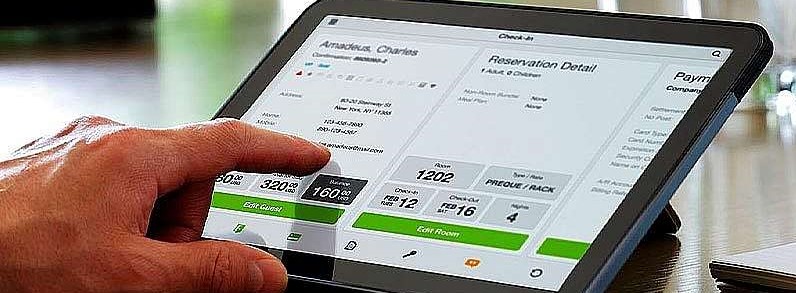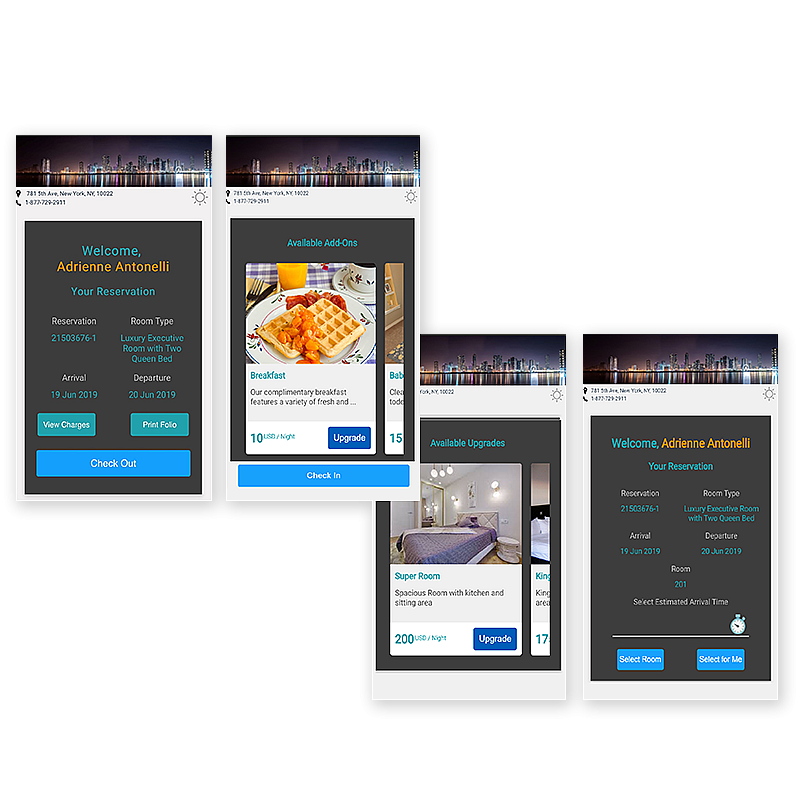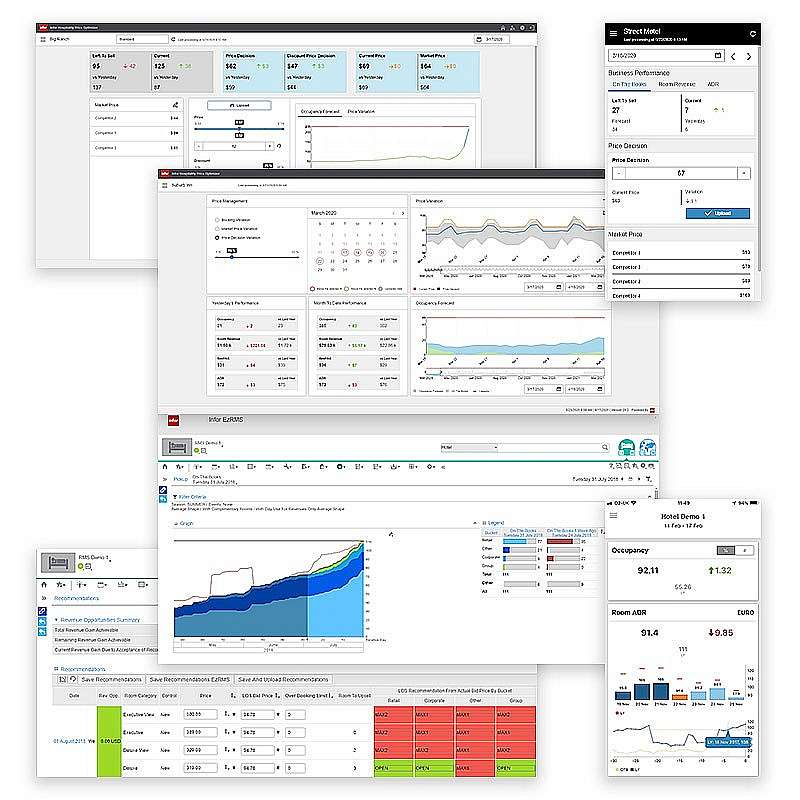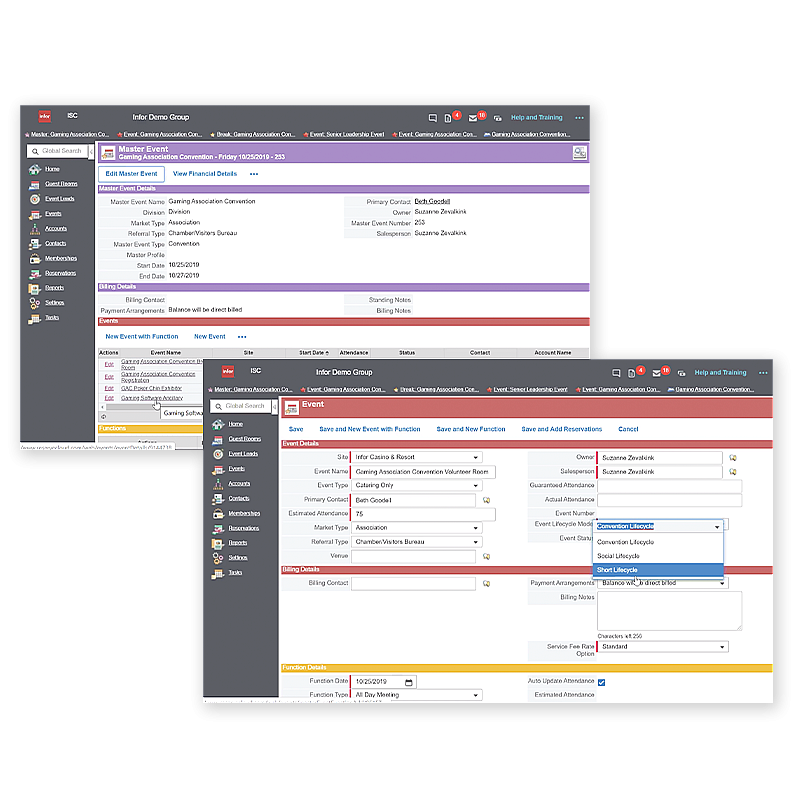
8.9.2021
Mukund Mohan has been a hospitality technology professional for more than 28 years. He joined Infor Hospitality in 2010 as Vice President of Product Strategy. Before joining Infor, Mohan worked at MICROS where he held various positions including the role of director, strategic major accounts. A native of Bangalore, India, Mohan has an engineering degree in computer science technology and holds certifications in information systems management.
Thousands of global hotel and resort brands leverage Infor’s hospitality cloud solutions. This includes property management systems, hospitality revenue management systems, and a full range of scalable applications across the industry designed to optimize operations, deliver a superior guest experience, and meet the challenges of a constantly evolving hospitality space that has seen more than its share of challenges over the past year and a half. In this interview, we asked Mohan to share his perspective on some of the challenges currently facing hoteliers and the role of technology in hospitality’s future.

How has the current trend of hotel staffing shortages affected the hospitality industry?
It’s important to note the hospitality industry covers a wide range of businesses, including hotels, casinos, gaming, food services, and restaurants. As many hospitality organizations begin reopening, a lot of hospitality workers who were laid off are now hesitant to return to the industry that has contributed to the labor shortage.
We have also noticed that, during the pandemic, many hospitality workers strategized for their future career plans due to the uncertainty the industry was facing. Some employees learned new skills to take on a new career trajectory, which resulted in many current and former hospitality workers leaving the industry.
How is innovative cloud technology supporting hospitality organizations with lower employee counts, as well as helping organizations rebound from the pandemic?
Technology has kept us all connected during the pandemic, and the hospitality industry is no different. For example, smaller restaurants began using online ordering via apps to provide a safe and efficient experience for their customers. To remain afloat, business owners needed to leverage automation technology and tools. While many automation tools were available prior to the pandemic, many businesses did not leverage the technologies or were in the early stages of implementation.
Using cloud-based technologies became especially important for hospitality establishments. For example, establishments could operate with minimal staff to keep the lights on and run operations remotely, enabling safety measures for their employees and guests. Hospitality establishments implemented safety protocols using technology with online processes to streamline the guest experience. Various hotels implemented online check-in and check-out measures and provided mobile applications to guests, which allowed them to use their smartphones as a hotel room key. As a result, contactless technology became a necessity and the norm for all businesses within the hospitality industry.
Prior to the pandemic, Infor had been working with customers to onboard contactless technologies to fuel their businesses. In response to COVID-19, implementing and improving contactless technology for our customers and their guests became critical and urgent. We immediately shifted even more focus and effort to helping our hospitality customers ramp up and adapt quickly to the new industry needs.
What trends, spurred by the pandemic, do you foresee remaining in the industry?
Contactless experiences are here to stay. Even at home, we already engage with contactless technology. If we don’t want to go to the store, we can easily order items online and have them arrive at our doors.
However, in the hospitality industry, this trend was never actually expected until the pandemic. The industry has now realized how easy it is to automate common services and the efficiencies that are being achieved. In the future, we can expect increased automation in all aspects of the industry, especially as the industry navigates around staffing shortages.
The pandemic has accelerated digital transformation in the hospitality industry. How will this digitalization further help the industry prepare for future industry disruption and unpredictable events?
Pre-pandemic, I think we all knew technology would play a large role in hospitality’s future. However, industry adoption just wasn’t there. Traditionally, pivotal digital transformation can take as much as 7-8 years to gain widespread adoption. The pandemic compressed the industry’s transformation timeframe from 7-8 years to 2-3 months.
In general, technology enables digital transformation. Ahead of the next industry disruption, those who have already undergone transformation are more likely to smoothly adapt to unprecedented challenges with the help of technology.
What outcomes and success have hospitality organizations realized as a result of working with Infor to address challenges brought about by the pandemic?
Infor continues to help thousands of global hotel and resort brands meet the challenges of today’s constantly evolving hospitality industry.
First, online check-in/check-out has become a totally mobile experience. While hotels have been short-staffed, this feature allowed customers to have a contactless and safe experience without relying on employees. Infor Hospitality Cloud solutions provide mobile functionality across all hospitality operations, such as mobile-based check-in and check-out. As a result, staff are empowered to engage with their guests safely and efficiently.
Second, Infor’s Hospitality cloud technology and mobility solutions, like the employee-based hotel operations app, housekeeper app, revenue manager app, mobile point of sale and mobile table reservations solutions, have created a seamless transition for employees to work remotely while successfully managing business operations. Given the uncertainty of whether or not employees could work in the office, Infor’s cloud technology has immensely helped maintain business operations without compromising service and keeping employees safe.
Lastly, Infor has provided its hospitality customers with mobile food ordering to keep their businesses running, paving a path for ongoing customer support and safety.
Looking forward, how is Infor helping hospitality organizations realize the next evolution of the hospitality industry post-pandemic?
Infor has been helping hospitality organizations manage on-site operations digitally to provide a seamless experience for both employees and customers. By accelerating the move to the cloud, businesses can automate further with artificial intelligence and machine learning to address mundane tasks and improve business results. Organizations benefit from having a centralized view of their businesses, which allows them to better analyze data, understand their business, identify trends, and respond with agility.
We continue to enhance our hospitality cloud solutions with newer revenue forecasting tools. These tools use data science to drive revenue and profitability for hospitality establishments. To support the industry, we also continue to innovate for the next generation of technology. Guest self-service and staff productivity tools track requests and deliver according to the customer’s needs. In addition, hotel staff mobile tools deliver service expeditiously. Furthermore, housekeeping, revenue management, event management, table reservations, and point of sale tools provide the right prices for the right products.
Our customers have noted Infor Hospitality solutions are very beneficial to their businesses based on our easy and intuitive user interface, modern platform and mobile applications that can be used to elevate experiences for guests.
